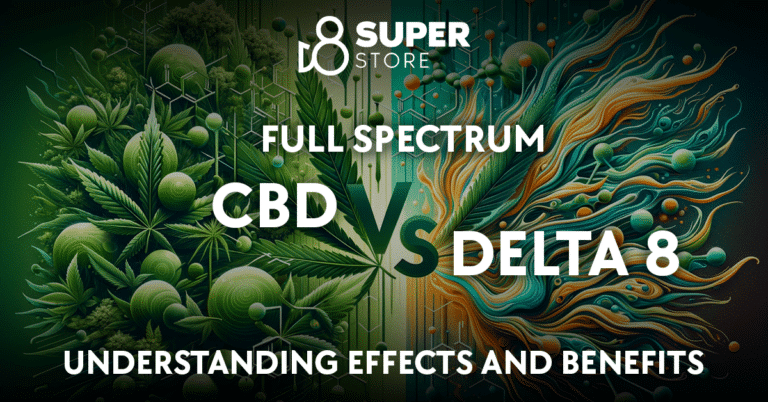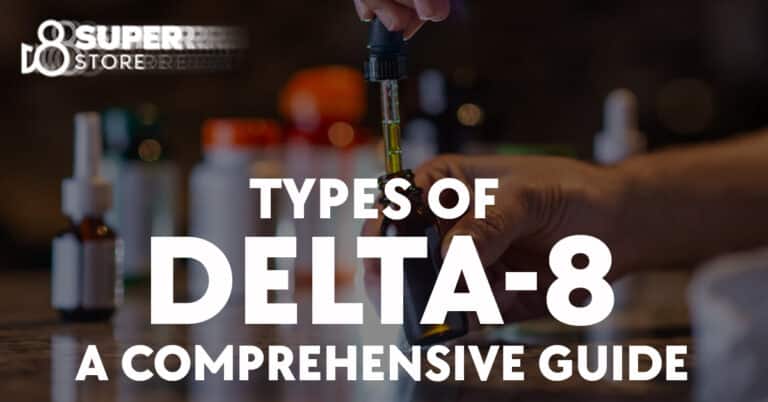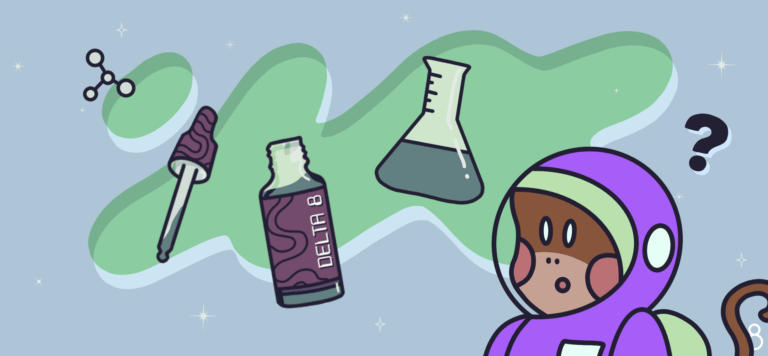Which Delta Is the Strongest: Unraveling the True Power of Variants
The world of weed is buzzing with cool new concepts and earth-shaking innovations catching eyes across the globe. The talk of the town? Delta cannabinoids, grabbing glory from every direction. These tiny titans pack the punch for both the noggin’ tingles and the body relaxation, but which Delta is the strongest? Shining in the spotlight, Delta 8, Delta 9, and Delta 10 THC each bring a unique vibe to mingling with your mental and physical state.
These different delta cannabinoids have varying levels of potency, which influences their therapeutic potential and the overall experience for the user. Moreover, the legal status and regulations surrounding these compounds play a role in their availability in the market. The popularity of these products has led to a diverse range of offerings, from vape cartridges to edibles, making it essential for consumers to know how to select and compare delta strains based on their specific needs and preferences.
Key Takeaways
- Delta 8, Delta 9, and Delta 10 THC have unique molecular structures and potencies, affecting their therapeutic potential and users’ experiences.
- Legal status and regulations play a role in the availability of different delta cannabinoids in the market.
- Selecting and comparing delta strains is essential, as product forms and market trends vary widely for the different types of deltas.
Understanding Different Types of Delta
The cannabis plant produces various cannabinoids with distinct properties and effects. Among these cannabinoids are Delta 8 THC, Delta 9 THC, and Delta 10 THC. This section will briefly explain their differences and similarities, focusing on potency and molecular structure.
Delta 8 THC
Delta 8 THC is a less potent cannabinoid compared to Delta 9 THC. It has gained popularity due to its milder psychoactive effects and potential therapeutic benefits. Delta 8 THC’s molecular structure is quite similar to that of Delta 9 THC, but with a minor difference in the placement of a double bond. This difference results in its reduced psychoactivity.
Key characteristics:
- Milder psychoactive effects
- Potential therapeutic benefits
- Slightly different molecular structure
Delta 9 THC
Delta 9 THC is the most well-known and potent cannabinoid. It is responsible for the primary psychoactive effects associated with marijuana consumption. Its molecular structure has a double bond at a different position compared to Delta 8 THC, resulting in stronger psychoactivity.
Key characteristics:
- Strongest potency
- Psychoactive effects
- Most recognized cannabinoid
Delta 10 THC
Delta 10 THC is a relatively new cannabinoid that has recently gained attention in the cannabis industry. It is the least potent among the three Deltas discussed here, with significantly milder psychoactive effects. Delta 10 THC has a different molecular structure compared to both Delta 8 and Delta 9 THC, influencing its milder potency and unique properties.
Key characteristics:
- Least potent
- Milder psychoactive effects
- Novel cannabinoid
These three types of Delta THC – Delta 8, Delta 9, and Delta 10 – offer varying potencies and effects due to their unique molecular structures. As the cannabis industry continues to grow and evolve, further research is needed to understand the full potential and wide-ranging benefits these cannabinoids may offer.
Molecular Structure and Potency
Double Bond Position
The potency of different delta THC compounds is largely determined by the position of the double bond in their molecular structure. Delta-9 THC, the most well-known, has the double bond on the ninth carbon atom, making it the strongest of the three main delta compounds. Delta-8 THC features a double bond on the eighth carbon atom, resulting in a milder effect compared to Delta-9. Meanwhile, Delta-10 THC has its double bond on the tenth carbon atom, causing it to be the mildest among the three. A study from 1973 found that Delta-8 could cause effects such as visual distortions, euphoria, relaxation, and difficulties with concentration, although at a lower potency than Delta-9.
Chemical Composition
Despite their differences in potency, Delta-8, Delta-9, and Delta-10 THC share similar chemical compositions. However, the slight variations in their molecular structures lead to different therapeutic effects. Delta-9 THC is widely known for its strong psychoactive properties, while Delta-8 is considered to be about half as potent as Delta-9. On the other hand, Delta-10 is the mildest among the three.
Moreover, other cannabinoids such as THC-O are considered to be even more potent than Delta-9 THC, with Area 52 stating it to be around three times as potent. These variations in potency highlight the importance of understanding each cannabinoid’s molecular structure and chemical composition when assessing their therapeutic potential.
Effects of Different Deltas on the Body and Brain
Euphoria and Relaxation
Delta-8 THC is known for providing a calming or euphoric effect without intense feelings of paranoia and anxiety1. This cannabinoid interacts with the CB1 receptors in the brain, leading to relaxation and reduced anxiety2. Delta-10 THC is less abundant and has a milder psychoactive effect compared to delta-8 and delta-9 THC, making it useful for those seeking a mild high without overwhelming side effects3.
Anxiety and Paranoia
While delta-8 THC is often praised for its calming effects and lessened risk of anxiety, delta-9 THC, found in higher concentrations in cannabis plants, can cause more intense paranoia and anxiety in users2. The combination of cannabinoids, terpenes, and other compounds in a given strain can greatly influence the overall psychoactive effects; this concept is known as the entourage effect4. Some strains, like those high in CBD, CBG, or THCV, can help balance the anxiety-inducing effects of delta-9 THC by working together harmoniously within the endocannabinoid system5.
Pain Relief and Inflammation
Cannabinoids like delta-8, delta-9, and delta-10 THC all interact with the endocannabinoid system, which plays a crucial role in pain and inflammation regulation6. Delta-8 THC has been suggested to have potential benefits in pain relief and reduction of inflammation, although more research is needed to confirm its effectiveness2. Delta-9 THC, being the most psychoactive and abundant cannabinoid, is better studied and has been reported to help with pain management and inflammation reduction7. Delta-10 THC, due to its lower concentration and milder effects, might also contribute to pain relief and inflammation management, but further studies are required to validate this claim8.
Legal Status and Regulations
Federally Legal Products
Delta-8, Delta-9, Delta-10, and THCo are all different forms of THC found in cannabis plants. While each form has its own level of potency, they are also subject to varying legal standings.
Federally, the most well-known and prevalent form of THC, Delta-9, is illegal under the Controlled Substances Act. However, the 2018 Farm Bill legalized the production of hemp-derived products, which lead to the rise in popularity of Delta-8 THC. As long as the product is derived from hemp and contains less than 0.3% Delta-9 THC, it is considered federally legal1. This has resulted in a surge of Delta-8 products, including oils and edibles, available in the market.
State by State Legality
Despite the federal legality of Delta-8 THC and other hemp-derived products, the legal landscape varies on a state-by-state basis. In some states, Delta-8 is legal or tolerated, while in others, it is heavily restricted or banned outright. As of August 2021, at least 18 states have restricted or banned Delta-8 THC in some way3.
To better understand the legal status of Delta-8 in your state, it is necessary to examine individual state laws and regulations. Some states might require a medical marijuana card to access Delta-8 products, while others might impose restrictions on the sale and distribution of such products. It is crucial to consult local legislation and keep updated on any changes, as states continue to adjust their laws regarding these cannabinoids.
As a consumer of cannabis products, you should always be aware of the variations in legal status and regulations, based on your location and the specific form of THC being consumed. Keep in mind that even if a product is federally legal, it might not be permitted in your state. Additionally, depending on your job or personal situation, Delta-8 THC or other cannabinoid consumption might still result in a positive drug test, regardless of its legality.
Medical Benefits and Therapeutic Potential
The various delta cannabinoids, including Delta-8, Delta-9, and Delta-10, offer a range of medical benefits and therapeutic potential. While research is still ongoing, the cannabinoids have shown promise in addressing various physical and mental health concerns.
Medical Marijuana Applications
Medical marijuana employs different cannabinoids to help address various ailments. Delta-9, being the most well-known and potent form of THC, has been widely used for its anti-inflammatory and pain-reliefproperties. Additionally, it is attributed to stimulating the appetite and aiding patients with sleep disorders.
Delta-8, although less potent than Delta-9, still offers pain relief, appetite stimulation, and nausea reduction. It also has calming effects and mild euphoria, which can be beneficial for patients with anxiety or stress disorders.
Mental Health
The cannabinoids in question interact with CB1 and CB2 receptors to help alleviate symptoms of mental health disorders. Delta-9, for example, can increase feelings of euphoria and stimulate creative thinking, which may be beneficial for individuals suffering from depression or mood disorders.
Delta-8 is less potent compared to Delta-9, offering a more relaxed experience with minimal psychoactive effects. This makes it an appealing option for people with anxiety or stress, as it does not cause the intense high often associated with Delta-9 THC.
Physical Health
Aside from the mental health benefits, cannabinoids also offer physical health benefits. Delta-9, being anti-inflammatory, can help reduce inflammation in the body, which is vital for patients with chronic conditions like arthritis or Crohn’s disease. The pain-relieving properties of both Delta-9 and Delta-8 have proven beneficial in treating conditions such as migraines, muscle spasms, and neuropathic pain.
In conclusion, the various delta cannabinoids have different therapeutic potentials in addressing mental and physical health concerns. While Delta-9 is the most potent and widely known, Delta-8 offers milder effects with therapeutic potential that may be more suitable for some individuals, depending on their specific needs and tolerance levels.
Popular Product Forms and Market Trends
Oil and Tinctures
Oil and tinctures are two popular ways of consuming hemp-derived products, offering a versatile and accessible solution for users. These products vary in potency and can be easily measured depending on one’s tolerance and desired effects. The market offers options featuring delta-10 THC, known for its subtle psychoactive effects that promote relaxation without causing paranoia. In contrast, some users prefer products with higher concentrations of delta-9 THC, the well-known cannabinoid found in marijuana.
Oil and tinctures can be taken sublingually, ingested, or added to food or beverages. The absorption process differs between ingestion methods, affecting the onset time of the effects. Hemp-derived THC tinctures typically contain trace amounts of other cannabinoids, such as cannabidiol (CBD), which may have synergistic benefits.
Edibles and Cartridges
Edibles are another popular form of hemp and marijuana products, providing users with a discrete and flavorful way to consume their desired cannabinoids. Edibles come in various forms, like gummies, chocolates, and baked goods, and can contain varying concentrations of delta-10 THC or delta-9 THC. It’s important for consumers to be aware of dosage to avoid overconsumption, as the effects can take longer to set in.
Cartridges, on the other hand, provide a convenient and easy-to-use option for vaping cannabinoids. Many cartridges are designed for use with standard vape pens and offer a wide range of potencies, strains, and flavors. Whether users prefer sativa or indica strains, they can find cartridges that suit their preferences and provide them with the desired effects.
Vapes and Disposables
Vapes have become a popular choice for both hemp and marijuana users due to their rapid onset and discreet usage. These devices come in various forms, from refillable vape pens to single-use disposable options. Vapes allow users to inhale vaporized oil, providing fast-acting effects on the brain and body.
Disposable vapes are a convenient choice for those who want a quick, discrete, and low-maintenance option. These single-use devices come pre-filled with a set amount of oil, allowing users to enjoy the effects without the need to recharge or refill. As the market continues to expand, consumers can expect to see more innovative and diverse forms of vapes and disposables catering to different preferences and needs.
Selecting and Comparing Delta Strains
When choosing delta strains, it’s important to consider the effects and experiences associated with different types of strains like Indica, Sativa, and Hybrid. Cannabinoid and terpene profiles also play a significant role in determining the overall potency and effects of delta strains.
Indica, Sativa, and Hybrid Strains
Indica strains are typically known for their relaxing effects on the body, making them ideal for evening use or when seeking relief from stress and anxiety. Some popular indica delta strains include OG Kush which has 5.76% Delta 8 THC and 15.61% CBD.
Sativa strains, on the other hand, provide energizing and uplifting effects that are more suitable for daytime use or when looking for a boost in creativity and focus. An example of a Sativa-dominant hybrid with Delta 8 THC is the Delta North strain.
Hybrid strains are a blend of both Indica and Sativa, offering a balance between the two types of effects. These strains are often preferred by those seeking tailored experiences that can vary depending on the specific combination of Indica and Sativa genetics.
Cannabinoid and Terpene Profiles
Cannabinoids such as Delta 9 THC, Delta 8 THC, THC-P, HHC, THC-O, THCa, THC-V, and Delta 10 THC are the primary compounds responsible for the psychoactive effects and potential therapeutic benefits of hemp-derived products. The potency of each cannabinoid varies, with Delta 9 THC being the most well-known and potent form. However, other cannabinoids like Delta 8 and Delta 10 THC are gaining attention for their unique properties, and they are found in different hemp strains.
Terpenes contribute to the aroma and flavor profile of hemp strains, as well as potentially influencing the overall experience of using delta products. They may have a synergistic effect with cannabinoids, leading to the “entourage effect” and providing a more well-rounded experience for users. Common terpenes include myrcene, limonene, and caryophyllene, each contributing to different characteristics and effects.
To choose the strongest delta strains, consider the cannabinoid and terpene profiles, as well as your preference for Indica, Sativa, or Hybrid strains. Researching and comparing different hemp-derived products will help you find the most suitable option for your needs. Keep in mind that the experience may vary from person to person, and it’s essential to use delta products responsibly and within the limits set by your local laws and regulations.
Frequently Asked Questions
Is Delta-10 stronger than Delta-9?
Delta-10 is not necessarily stronger than Delta-9. While both are cannabinoids found in cannabis, Delta-9 is the most well-known and potent form of THC, responsible for the intoxicating effects of cannabis. Delta-10 is a newer and less researched cannabinoid, but it is known to have milder psychoactive effects compared to Delta-9 THC. Users may experience different effects based on individual factors and the ratio of cannabinoids in a product.
Delta-8 vs Delta-9: Which is stronger?
Delta-9 is generally considered to be stronger than Delta-8. Both cannabinoids can produce psychoactive effects, but Delta-9 is known to cause more potent and intense effects. In comparison, Delta-8 is often associated with a smoother, more relaxing experience without the intense high or anxiety sometimes experienced with Delta-9 THC. However, individual experiences may vary based on factors such as dosage, tolerance, and the specific product used.
What is the strongest Delta cannabinoid?
Delta-9 THC is currently considered the strongest Delta cannabinoid. It is the primary psychoactive component in cannabis that produces the characteristic “high” associated with recreational and medical use. Other Delta cannabinoids, like Delta-8 and Delta-10, have milder psychoactive effects. Research on additional Delta cannabinoids is ongoing, and new findings could reveal more potent forms in the future.
Delta-11 comparison with Delta-8 and Delta-9
There is very limited information available on Delta-11 THC, making it difficult to directly compare it with Delta-8 and Delta-9. As a result, it is currently not possible to confidently draw any conclusions about Delta-11’s potency, effects, or safety profile.
Delta-9 vs Delta-11: Which is more potent?
As of now, there is insufficient research to confidently compare the potencies of Delta-9 and Delta-11 THC. With limited information on Delta-11, it is not possible to determine which cannabinoid is more potent. Delta-9 remains the most well-researched and potent Delta cannabinoid known today.
Which is stronger: Delta-8 or Delta-10?
Delta-8 and Delta-10 are both considered to have milder psychoactive effects compared to Delta-9 THC. However, when comparing Delta-8 and Delta-10 directly, differences in potency may not be as significant. Users may experience varying effects based on individual factors, the specific product, and the ratio of cannabinoids. As of now, there isn’t enough research to definitively say which one is stronger between Delta-8 and Delta-10.
Footnotes
- Discover Magazine ↩ ↩2
- Healthline ↩ ↩2 ↩3
- Terpenes and Testing ↩
- National Library of Medicine ↩
- Harmony ↩








